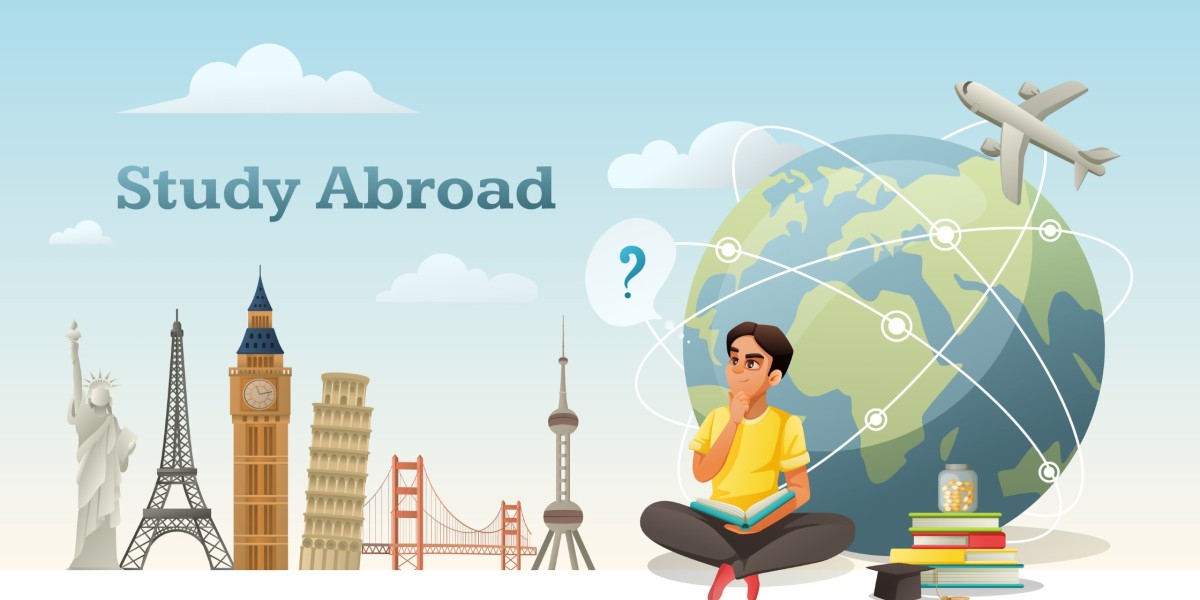Employers are looking for flexible skills and a global mindset in view of the interconnectivity that is availed in the world. Studying abroad is yet another profound experience that perhaps shapes a man's life in an entirely different yet similar way and opens up various facets of opportunity. More than just an experience offering culture diversity and everlasting pals, schooling abroad assists a graduate in narrowing the knowledge gap and allowing that person to stand out among many for a given position. The paper thus, in all these dimensions, intends to focus on the crucial avenues that may tilt a person's life pathway onto a career and thereby make studying abroad the best investment of one's lifetime.
1. Enhanced Skills in Cross-Cultural Communication:
It is of utmost importance to communicate well across cultures in today's globalized economy. Studying abroad immerses you in another cultural setting, modifying your communication styles and building intercultural competence. You learn to interpret cultural subtleties, understand various perspectives, and establish rapport with people of various backgrounds. Employers treasure such abilities in international markets.
2. Enhanced Language Proficiency:
Another edge in the job market is language learning. Outside study welcomes language learning in context as one develops fluency and confidence in speaking, listening, reading, and writing. Companies that operate across borders, international organizations, and businesses engaged in global trade are interested in bilingual or multilingual candidates.
3. Enhance Adaptability and Problem-Solving:
Stepping beyond the borders of your comfort zone into a new culture will demand and enhance skills of adaptability, resilience, and problem-solving. The experiences abroad bombard you with unfamiliar challenges that mandate a certain level of comfort with new environments and quick thinking on your feet to creatively resolve problems that were not anticipated. All these experiences develop an outwardly flexible mindset and a proactive and solution-oriented approach-problem-solving skills are much in demand by any employer working in a fast-paced ever-changing environment.
4. A Bigger Global Network:
When you study abroad, you open a whole world of contacts-fellow students, faculty members, and professionals from all over the world. These connections might turn out to be some of the most valuable items for your career in terms of job openings, mentorships, and insights into the industry. A strong international room opens possibilities for collaboration and career prospects that you may never have thought of in the past.
5. Increased Confidence and Personal Development:
Studying overseas fosters tremendous personal development due to its difficulties and rewards. You get more self-assurance, autonomy, and a more comprehensive outlook on the world. Employers who are looking for someone with initiative, leadership potential, and a global mentality find these personal attributes to be quite appealing.
6. Self-belief and Personal Development:
Foreign studies solitarily present opportunities and challenges for a comparatively accelerated process of personal development. You gain self-assurance, independence, and a wider view of the world. These personal traits are much sought after by employers. An employer wants to see someone with a global attitude, leadership potential, and initiative.
7. A Wider Perspective and Global Citizenship:
You attain insight on international cultures, perspectives, and ways of lifestyles because abroad study programs immerse you in all these factors. While global citizenship and awareness towards global issues shall arise from studying abroad, intelligence and competence are other considerations in evaluating job candidates. Employers nowadays equally highly value citizens with a global view and a passion for making a difference.
Read More: Study abroad Consultants in Delhi
Conclusion
Studying abroad would be long-term payback in itself. The skills you have gained during this invaluable experience and international network formation will likewise bring an added asset to your job prospects. Accepting the challenges and prospects that international education brings prepares you for a lifetime career; the degree of preparedness ensures success in the fast-paced, ever-changing international job market, where opportunities often vanish before one reaches them. The first step toward realizing your dream of studying abroad is to consider your options and consult a counselor.
Frequently Asked Questions
1. In what sense does studying abroad develop my cross-cultural communication skills, and why is this important for my career?
The study abroad programs implement the culture shock, thus forcing you to learn to communicate differently and navigate some of the cultural subtleties that come into play. You are made aware of these diverse perceptions, building rapport with people from different backgrounds. These intercultural communication skills are sought thin on the ground by employers in our globalized economy, as they serve to show flexibility, empathy, and the important ability to work within diverse teams.
2. Does studying abroad contribute to the improvement of my language skills, and how will that benefit me in my career?
Having an immersive environment for mastering languages should truly be the gold standard. From the moment one enrolls in an overseas study program, the target language is brought much closer to his everyday situation. This constant targeting of language grants fluency or confidence within the realms of comprehension and interaction in days. Bilingual and multilingual professionals are in huge demand all over the world and tend to create niches for themselves in collaborative scenarios. Thus, opportunities for international collaboration, global businesses, and career advancement abound altogether.
3. In what way is studying abroad going to contribute to my personal development, and why is that important in relation to my career?
The challenges and successes one faces while studying abroad create independence, resilience, and problem-solving-taking capabilities. You learn to adapt to the situation and the unfamiliar setting that has just thrown an obstacle in your way and begin to open your eyes to seeing the bigger picture. These experiences in personal growth convert into confidence, initiative, and adaptability-an alternative set of qualities that employers are looking for in a well-rounded, capable person.
4. Is studying abroad really an advantage in the job market, and in what manner could I highlight that experience to the employer?
For sure! Any international experience that helps to demonstrate adaptability, cross-cultural communication skills, and a global mindset is prized by those who hire people. Make sure you are spotlighting your study abroad experience in your resume and interviews. Be sure to discuss all of the skills you gained, the challenges you faced, and how your international experience makes you different and valuable for their organization.
5. How does studying overseas help me build a worldwide network, and why are professional relationships so important to my career development?
Building relationships with academics, professionals, and other students worldwide is made possible by studying abroad. Through job openings, mentoring, and market intelligence, the contacts become immensely helpful for career advancement. A strong international network can benefit a person throughout their career and open doors for international partnerships and other technological advancements.









